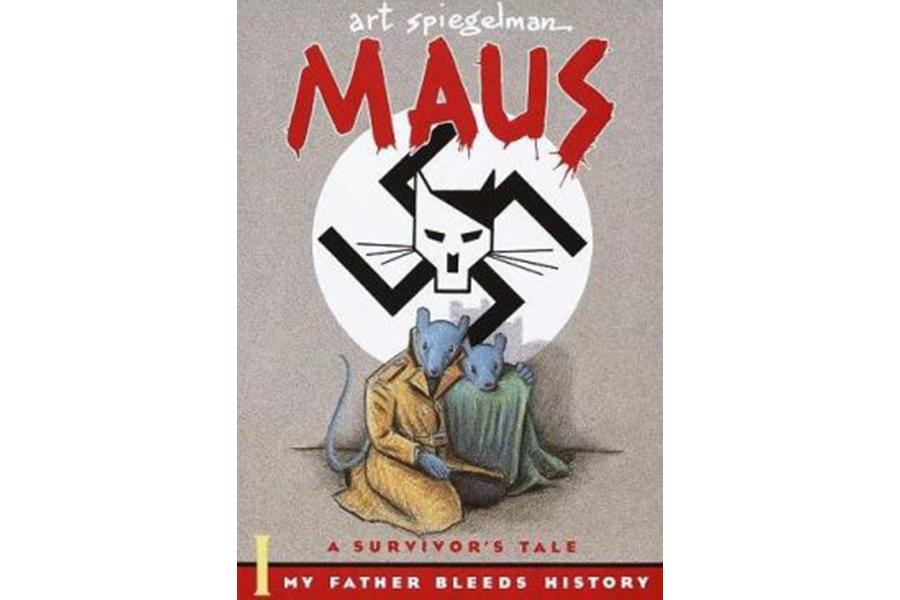Why Russia is calling a book by a Holocaust survivor 'Nazi propaganda'
Loading...
How's this for irony? A Pulitzer Prize-winning graphic novel about the Holocaust, told through the eyes of a Holocaust survivor, has been banned in Russia as Nazi propaganda, because the novel's cover sports a swastika.
Cartoonist Art Spiegelman's graphic novel about the Holocaust, "Maus," features a pair of mice, portraying Jews, hunched beneath a caricature of Adolf Hitler, portrayed as cat-like. Behind Hitler is a large swastika.
The problem? In preparation for Russia's Victory Day celebration, to be held May 9 to commemorate the Soviet Union's defeat of Nazi Germany, the country is cracking down on Nazi insignia, including, problematically for "Maus," swastikas. As such, Russian bookstores have cleared their shelves of the celebrated graphic novel, which won a Pulitzer Prize in 1992.
Author Spiegelman says he is bemused – and concerned.
It is "rather well-intentioned stupidity on many levels." Spiegelman told NPR in an interview Tuesday. But he also told the UK's Guardian that Russia's ban is a “harbinger of a dangerous thing.”
That's because, as NPR reported, "The 1980 novel is the very antithesis of Nazi propaganda." The tale is an anti-fascist message that recounts the Holocaust through the eyes of Spiegelman's father, a Polish Jew and Holocaust survivor, who later moved to the United States. The graphic novel depicts Nazis as cats and Jews as mice.
In December, Russia passed a law forbidding "Nazi propaganda." "Maus" was among the works caught in the new law's snare.
“I don’t think Maus was the intended target for this, obviously,” Spiegelman told the Guardian. “But I think [the law] had an intentional effect of squelching freedom of expression in Russia. The whole goal seems to make anybody in the expression business skittish.”
“It’s a real shame because this is a book about memory,” he added. “We don’t want cultures to erase memory.”
But it's not the first time "Maus" has been challenged because of its cover.
When the novel was sent to a German publisher, the publisher balked because it was against Germany's law to show swastikas on book covers.
Spiegelman wouldn't budge and insisted on including the swastika on the cover. In fact, he felt so strongly that the cover remain as he originally designed it that he included this condition in all his publishing contracts.
In the end, the German publisher found a loophole that allowed swastikas for works of serious scholarly import and lobbied the government to allow the novel with its original cover.
The most recent outcry over the cover of "Maus" appears to be a sign of the times, a moment in history when freedom of speech is threatened, Spiegelman has suggested.
“This is a terrible time to express oneself," he told the Guardian, citing the attacks on Charlie Hebdo magazine in France and the forced exile of whistleblower Edward Snowden.
“I think of Snowden as one of the more freedom-of-expression issues of our time,” he said. “A righteous whistleblower is being forced into exile … in a country that is far less able to allow free expression than the one he was trying to improve.”
The same may be said of Spiegelman's Holocaust book ban in Russia.








